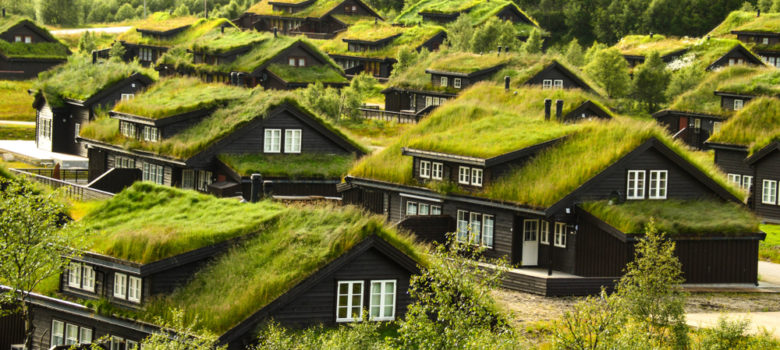Physical Address
304 North Cardinal St.
Dorchester Center, MA 02124
Physical Address
304 North Cardinal St.
Dorchester Center, MA 02124

Introduction
Cape Cod, with its attractive beauty and seaside charm, is experiencing a distinguished shift in its real estate landscape. A expanding trend in eco-friendly homes is redesigning the way people imagine their dream homes. This article explores into the various sides of this rising trend, discovering green building practices, energy-efficient structures, solar power integration, supportable landscaping, waste saving strategies, water conservation efforts, certifications, financial incentives, community impact, challenges, future trends, and case studies that exemplify successful eco-friendly home projects in Cape Cod.
Green Building Practices in Cape Cod
In the heart of Cape Cod, builders and developers are steering towards eco-conscious construction. This involves the adoption of sustainable materials that have minimal environmental impact. From recycled wood to energy-efficient insulation, the emphasis is on creating homes that align with ecological principles. Additionally, innovative designs incorporating energy-efficient technologies are becoming the norm, enhancing the overall sustainability of the homes.
Energy Efficiency Features
Cape Cod homeowners are increasingly seeking properties equipped with state-of-the-art energy-efficient features. This includes the installation of high-efficiency heating and cooling systems, allowing residents to enjoy comfortable living spaces while minimizing energy consumption. Smart home technologies further contribute to energy savings, enabling homeowners to monitor and control their home’s energy usage with ease.
Integration of Solar Power
One of the defining features of eco-friendly homes in Cape Cod is the integration of solar power. Solar panels are adorning rooftops, harnessing the abundant sunlight to generate clean and renewable energy. Homeowners are not only reducing their carbon footprint but also benefiting from cost savings in the long run. The picturesque landscapes of Cape Cod provide an ideal setting for harnessing solar energy, making it a practical and aesthetically pleasing choice for eco-conscious residents.
Landscaping for Sustainability
Beyond the walls of the homes, eco-friendly practices extend to landscaping. Residents are opting for landscaping designs that promote sustainability, incorporating native plants that thrive in the local climate. This not only enhances the aesthetic appeal of the property but also contributes to the preservation of local ecosystems. Sustainable landscaping practices prioritize water conservation and reduce the need for chemical interventions, creating a harmonious balance between human habitation and nature.
Waste Reduction and Recycling
Construction projects often generate significant amounts of waste, but Cape Cod is embracing strategies to minimize this environmental impact. Builders are implementing waste reduction measures, recycling materials, and adopting sustainable construction practices. This not only aligns with eco-friendly principles but also sets a standard for responsible construction in the region.
Water Conservation in Home Design
Cape Cod, with its coastal setting, recognizes the importance of responsible water usage. Eco-friendly homes in the region are designed with water-efficient features, such as low-flow faucets and toilets. Rainwater harvesting systems are also gaining popularity, providing residents with an alternative water source for non-potable uses. These measures contribute to the preservation of water resources and a more sustainable approach to residential living.
Certifications and Standards
To formalize the commitment to eco-friendly practices, many homes in Cape Cod are seeking green certifications. These certifications, such as LEED (Leadership in Energy and Environmental Design) or ENERGY STAR, validate the adherence to strict environmental standards. Homebuyers are increasingly prioritizing certified eco-friendly homes, recognizing the long-term benefits of reduced environmental impact and lower utility costs.
Financial Incentives for Eco-Friendly Homes
Government incentives play a crucial role in promoting the adoption of eco-friendly practices in Cape Cod’s real estate market. From tax credits to grants, financial incentives encourage homeowners to invest in sustainable features. While the initial costs of eco-friendly construction may seem higher, these incentives make the decision financially viable in the long run, fostering a more sustainable real estate market.
Community Impact
The shift towards eco-friendly homes in Cape Cod goes beyond individual residences; it positively impacts the entire community. The collective effort to reduce environmental impact fosters a sense of shared responsibility and community pride. Residents become advocates for sustainability, influencing others to embrace eco-friendly practices. This sense of communal commitment creates a more environmentally conscious and resilient community.
Challenges in Adopting Eco-Friendly Practices
Despite the evident benefits, there are challenges in the widespread adoption of eco-friendly practices in Cape Cod. Initial costs and investments pose a barrier for some homeowners. However, as awareness grows and technology advances, these challenges are gradually being addressed. Overcoming traditional construction methods is another hurdle, but the positive environmental impact serves as a compelling motivator for change.
Future Trends in Cape Cod Real Estate
Looking ahead, the future of real estate in Cape Cod is poised for exciting advancements in eco-friendly home design. Anticipated trends include the integration of cutting-edge technologies, increased energy efficiency, and innovative materials that further reduce the environmental impact of construction. As sustainability becomes a central theme in the real estate landscape, homeowners can expect even more eco-friendly options in the years to come.
Case Studies
Examining successful eco-friendly home projects in Cape Cod provides valuable insights into the practical implementation of sustainable practices. From energy-efficient renovations to newly constructed green homes, these case studies showcase the diverse approaches that homeowners and builders are taking to create environmentally friendly residences.
Consumer Awareness and Education
The key to sustaining the momentum of eco-friendly homes in Cape Cod lies in consumer awareness and education. It’s crucial to inform potential homebuyers about the benefits of eco-friendly features and how these choices contribute to a more sustainable future. As consumer preferences evolve, educating the market becomes an integral part of shaping the real estate landscape in Cape Cod.
Conclusion
In conclusion, the growing trend of eco-friendly homes in Cape Cod’s real estate market reflects a collective commitment to environmental sustainability. From green building practices to solar power integration, the region is embracing a more responsible approach to residential living. While challenges exist, the long-term benefits, financial incentives, and positive community impact position eco-friendly homes as a significant and enduring trend in Cape Cod.
FAQs